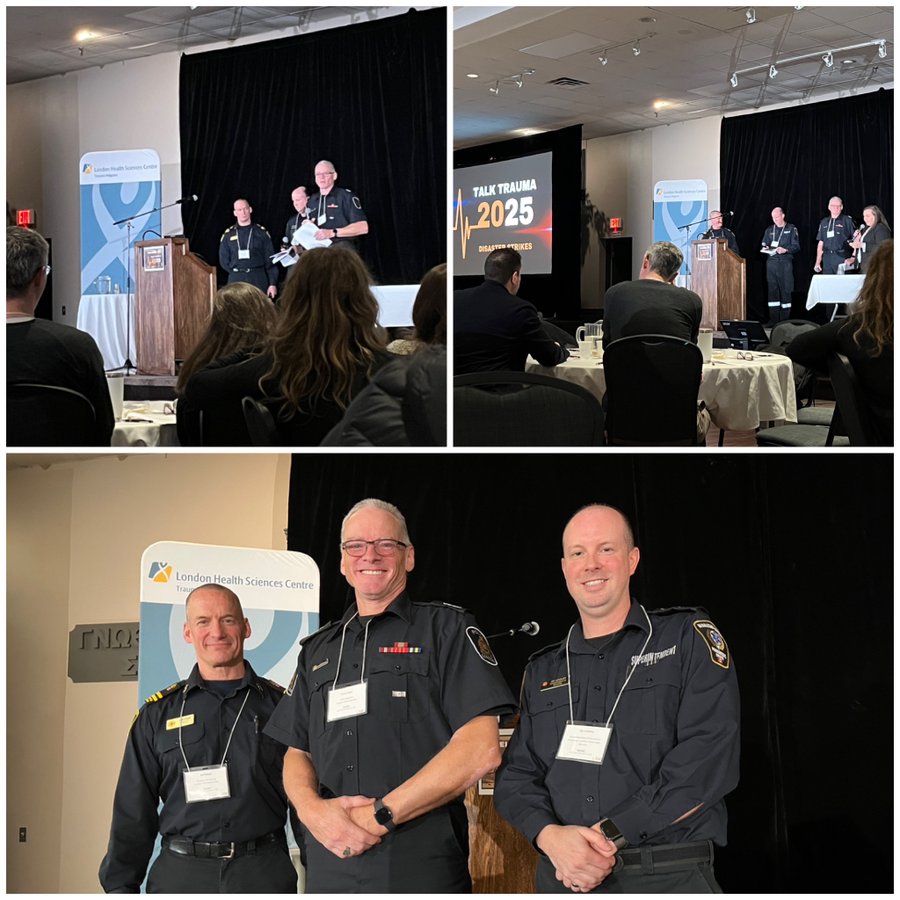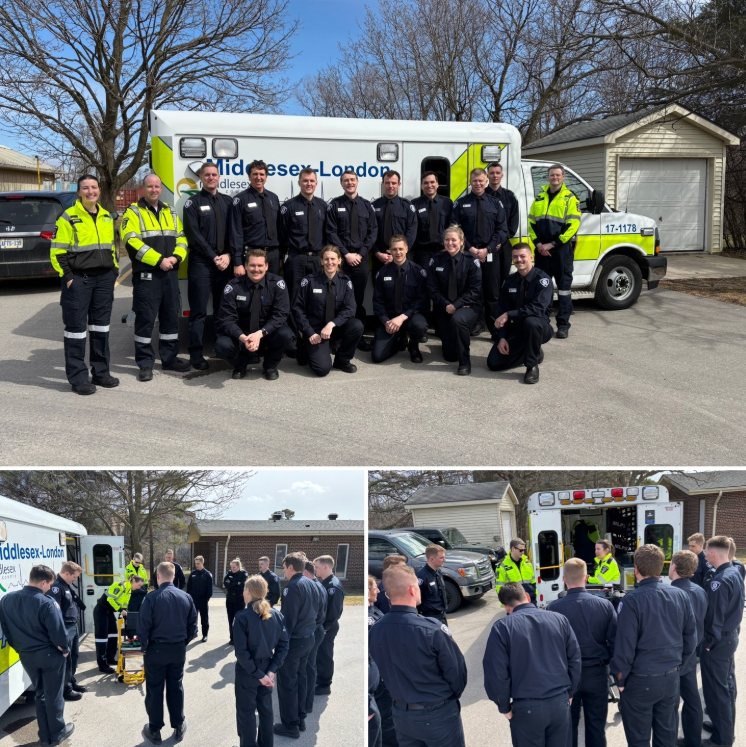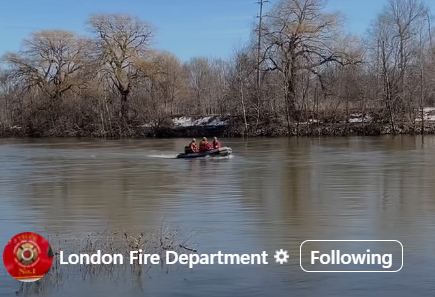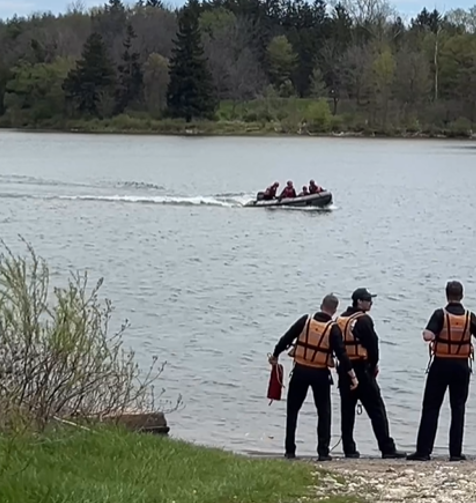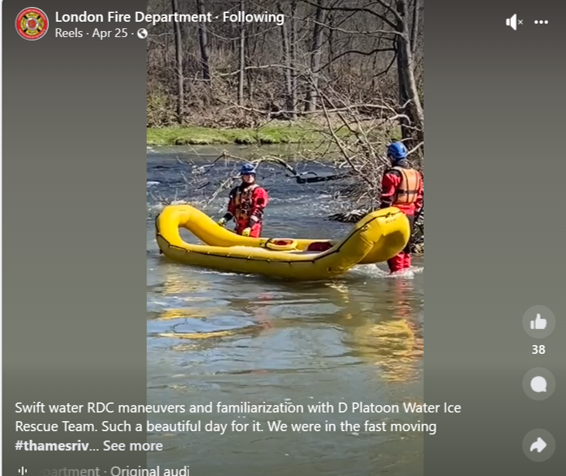- Photos by Paul Everest Members of the London Fire Department’s marine rescue and technical rescue teams took advantage of high water levels in the Thames River on Wednesday (Aug. 15) to carry out a rescue exercise at the Carfrae Dam.
- Photos by Paul Everest Members of the London Fire Department’s marine rescue and technical rescue teams took advantage of high water levels in the Thames River on Wednesday (Aug. 15) to carry out a rescue exercise at the Carfrae Dam.
- Photos by Paul Everest Members of the London Fire Department’s marine rescue and technical rescue teams took advantage of high water levels in the Thames River on Wednesday (Aug. 15) to carry out a rescue exercise at the Carfrae Dam.
At least two reporters thought there was real drama unfolding at the Carfrae Dam Wednesday morning (Aug. 15) after a dispatcher was heard over the emergency services scanner calling for rescue teams to pull a person from the Thames River.
Upon arrival at the scene near the intersection of Richmond and Carfrae streets, a message on a sandwich board sign indicated the London Fire Department was actually engaged in a rescue simulation and no one was in distress.
The department’s marine rescue and technical rescue teams were taking advantage of higher water levels in the river, thanks to recent rain, to practise working together to save people who had become trapped at the dam.
The scenario included a victim who was unconscious and trapped at the bottom of the dam and a “Good Samaritan” who had ventured into the water to save the victim and who had also become stuck at the top of the dam.
“That’s our danger spot in London,” said Dave Varga, the department’s team leader for the marine rescue unit, adding this was the first time his unit had practised carrying out a joint rescue with the technical rescue team, which is tasked with using ropes to carry out high-angle rescues.
Overall, 17 department members took part in the exercise and Varga said the purpose of the simulation was to re-familiarize the teams with dam rescues and to have the teams get used to working in unison.
It took members roughly 33 minutes to rescue the first victim, which was actually a dummy, using a “rapid deployment craft,” a boat that resembles a banana, cannot be tipped and has a hole in its front end to allow rescue personnel to easily pull a person safely from the water without having to drag a victim over the side of the boat.
The victim was brought back to shore and stabilized and the Good Samaritan, portrayed by a department member, was rescued seven minutes later.
Along with the two-person crew on the boat, one firefighter went across the dam on foot to assist while other members coordinated the rescue effort or made sure safety ropes tied to the rescuers and extending from one bank to the other were secure.
Varga said the department is on a four-week rotation schedule for training scenarios including water-rescue simulations and high-angle rescue exercises.
He added his crew takes every chance it can get to practise saving people from the water, especially near a dam, since such rescues happen infrequently.
“Fires we can handle like the back of our hand,” he said. “Water rescues are up our arm.”
By Paul Everest/London Community News/Twitter: @PaulEverest1




